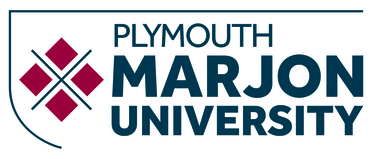Phosphorus nutritional knowledge among dialysis health care providers and patients: a multicenter observational study
Pafili, Zoe, Maridaki, Maria, Giannaki, Christoforos D., Karatzaferi, Christina, Liakopoulos, V., Theodoros, Eleftheriadis, Stefanidis, Ioannis and Sakkas, Giorgos K. (2019) Phosphorus nutritional knowledge among dialysis health care providers and patients: a multicenter observational study. Clinical Nutrition, 31. pp. 33-37. ISSN 0261-5614
|
Text
Phosphorus nutritional knowledge_Karatzaferi.pdf - Accepted Version Available under License Creative Commons Attribution Non-commercial No Derivatives. Download (722kB) | Preview |
Abstract
Background-aims Phosphorus nutritional knowledge level of hemodialysis patients and renal nurses has been found to be low, while respective knowledge of nephrologists has not been studied yet. There are equivocal results regarding the association of phosphorus nutritional knowledge level and serum phosphorus values. The aim of this study was to assess phosphorus nutritional knowledge of hemodialysis patients, nephrologists and renal nurses and seek potential interventions to improve patients’ adherence to phosphorus and overall nutritional guidelines. Methods This cross-sectional observational study was conducted on sixty eight hemodialysis patients, 19 renal nurses and 11 nephrologists who were recruited from 3 hemodialysis units in Greece. Phosphorus nutritional knowledge of the participants was assessed by a 25-item item questionnaire (CKDKAT–N) which included 15 questions on phosphorus and 10 questions on protein, sodium, and potassium knowledge. Results Nephrologists had higher CKDKAT–N total (19.1 ± 3.6 vs 14.1 ± 2.8 and 13.2 ± 2.8, P < 0.01) and phosphorus knowledge scores (10.6 ± 2.7 vs 7.6 ± 2.2 and 7.3 ± 2.0, P < 0.01) compared to renal nurses and patients respectively. There were no differences in total and phosphorus knowledge scores between nurses and patients. Patients and nurses answered correctly significantly less questions regarding phosphorus compared with the rest of the questions (P < 0.01) while no such difference was found in nephrologists. Serum phosphorus was positively correlated with phosphorus knowledge score (r = 0.31, P = 0.02), and negatively correlated with patient age (r = −0.34, P < 0.05). None of the patients, 11% of the nurses and 27% of the nephrologists answered correctly all three questions regarding P, K and Na dietary recommendations (P < 0.01). Conclusions The study confirms that hemodialysis patients have low renal nutrition knowledge while higher nutritional phosphorus knowledge does not lead to lower serum phosphorus values. Alarmingly, renal nurses have been found to have a similar level of knowledge with hemodialysis patients, something that needs to be taken into account when training the new dialysis staff. Nephrologists have superior knowledge; however they are still lacking essential nutritional knowledge that could affect patients' and nurses’ overall understanding. Continuing education on nutrition of nephrologists and renal nurses could improve nutrition care of hemodialysis patients.
| Item Type: | Article |
|---|---|
| Keywords: | phosphorus knowledge, hemodialysis, nephrologists, renal nutrition |
| Divisions: | Health Sciences |
| Depositing User: | Ms Kerry Kellaway |
| Date Deposited: | 03 Apr 2019 10:26 |
| Last Modified: | 12 Mar 2020 05:50 |
| URI: | https://marjon.repository.guildhe.ac.uk/id/eprint/17385 |
| Related URLs: |
https://www.sci ... nutrition-espen
(Publisher URL)
|
Actions (login required)
 |
Edit Item |

